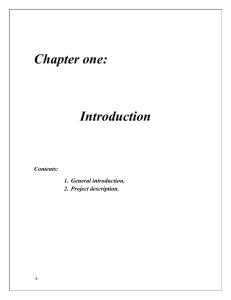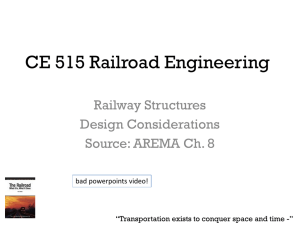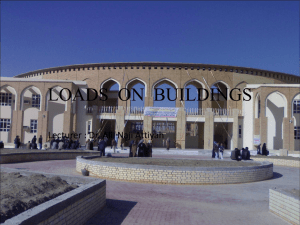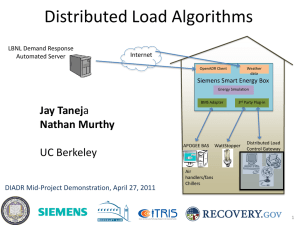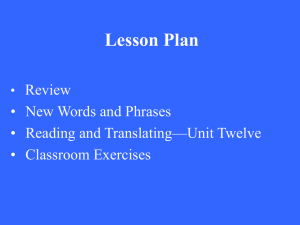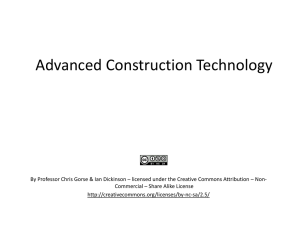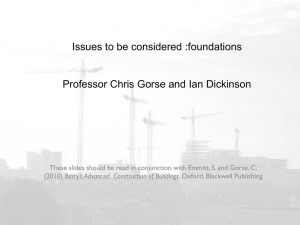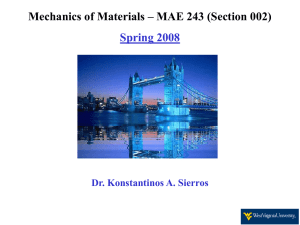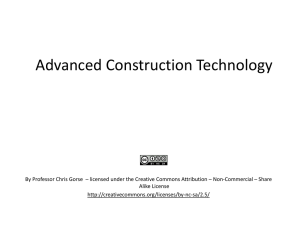Structural Analysis Chapter 01
advertisement
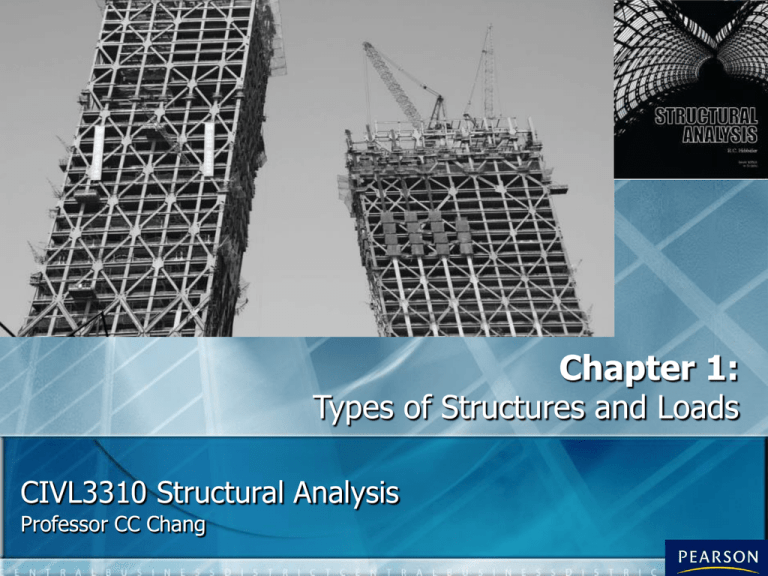
Chapter 1: Types of Structures and Loads CIVL3310 Structural Analysis Professor CC Chang Introduction • Structures refer to a system of connected parts used to support a load • Tallest buildings • Long-span bridges Structures • Classification of structures • • • • • Beam structures Arch structures Truss structures Domes and shells Columns and frames • Structural elements • Tie rods • Beams • Columns Issues • How are they designed? • How are they built? • How safe are they under earthquake, typhoon, or terrorist attack? A typical structural engineering project Government Planning Consultant Preliminary structural design Contractor Load estimation Structural analysis No Safety/serviceability Yes Construction Revised structural design Structural Analysis Planning Preliminary structural design Factors: Load, Temperature, etc. Load estimation Structural analysis Structure Safety/serviceability Yes Construction Performance Deformation, Stress, etc. Objective of this Course • To analyze, comprehend and present the behavior of structural systems under external effects Loads • Design loading for a structure is often specified in codes • General building codes • Design codes Loads • Types of load • Dead loads • Weights of various structural members • Weights of any objects that are attached to the structure Example 1.1 The floor beam is used to support the 1.83m width of lightweight plain concrete slab having a thickness of 102mm. The slab serves as a portion of the ceiling for the floor below & its bottom coated with plaster. A 2.44m high, 305mm thick lightweight solid concrete block wall is directly over the top flange of the beam. Determine the loading on the beam measured per m length of the beam. Loads • Live loads (Imposed loads) • Varies in magnitude & location • Building loads • Depends on the purpose for which the building is designed • These loadings are generally tabulated in local, state or national code Loads • Live loads (Imposed loads) Loads • Highway Bridge loads • Primary live loads are those due to traffic • Specifications for truck loadings are reported in AASHTO • For 2-axle truck, these loads are designated with H followed by the weight of truck in tons and another no. gives the year of the specifications that the load was reported 2-axle truck with semi-trailer Loads • Railway Bridge loads Loads • Wind loads • Kinetic energy wind potential energy of pressure • Depends on density & flow of air, angle of incidence, shape/stiffness of structure & roughness of surface • Can be treated as static or dynamic Loads • Earthquake loads • Earthquake produce loadings through its interaction with the ground & its response characteristics • Their magnitude depends on amount & type of ground acceleration, mass & stiffness of structure • During earthquake, the ground vibrates both horizontally & vertically Loads • Hydrostatic & Soil Pressure • The pressure developed by these loadings when the structures are used to retain water or soil or granular materials • E.g. tanks, dams, ships, bulkheads & retaining walls • Other natural loads • Effect of blast • Temperature changes • Differential settlement of foundation Structural Design • Material uncertainties occur due to • variability in material properties • residual stress in materials • intended measurements being different from fabricated sizes • material corrosion or decay • Many types of loads can occur simultaneously on a structure Structural Design • In working-stress design, the computed elastic stress in the material must not exceed the allowable stress along with the following typical load combinations as specified by the ASCE 7-02 Standard • Dead load • 0.6 (dead load) + wind load • 0.6 (dead load) + 0.7(earthquake load) Structural Design • Ultimate strength design is based on designing the ultimate strength of critical sections • This method uses load factors to the loads or combination of loads • 1.4 (Dead load) • 1.2 (dead load) + 1.6 (live load) + 0.5 (snow load) • 1.2 (dead load) + 1.5(earthquake load)+ 0.5 (live load)
